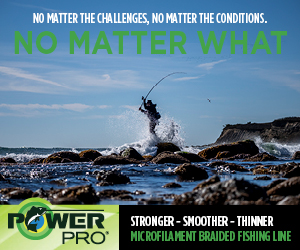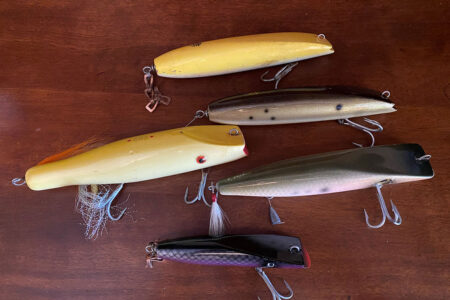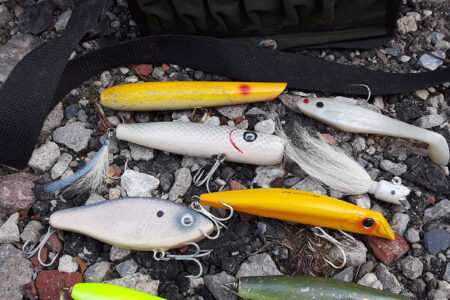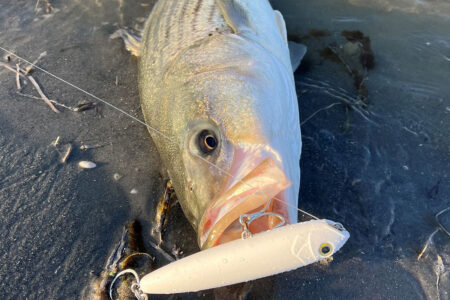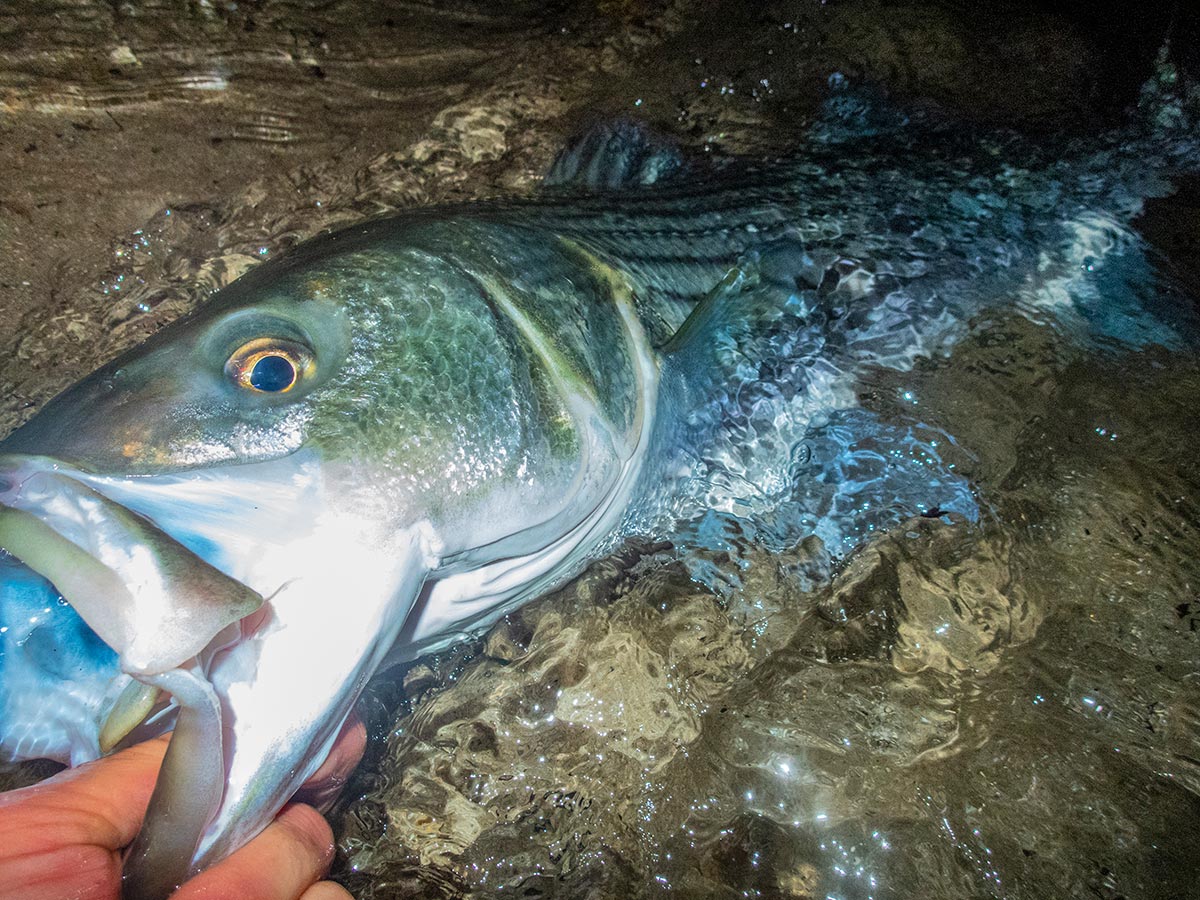
Showing respect to a fellow caster can foster a sense of camaraderie that could result in a long-term partnership.
Let me set-up a hypothetical scenario. You are fishing a spot for the fourth or fifth time, but are still attempting to figure it out. On this particular night, you walk down to the surf to find another angler adjacent to where you typically stand. He is tight to a fish, and it ends up being a nice 25-pounder. Excitedly, you dash down to the water and wade out to your rock and begin casting. However, all night long you can’t get a hit and this other angler is bailing fish. You can’t see what he’s casting, but you’ve tried every plug in your bag. You simply conclude they have to be in the better spot.
Your course of action at this point is one of great debate. Should you get closer? Should you wait until he leaves? Ask for help? Let’s address each of these points in turn.
First, if you’re getting schooled by another angler, don’t simply sidle up next to him or her and crowd them. Yes, there are times that the fish are going to be in a very small area, and if you aren’t on it you won’t catch. That stinks; it’s never fun to get skunked while a nearby “neighbor” bails fish. However, it doesn’t mean you need to be right on top of them either. Be respectful. After all, this is not a life or death situation. Further, moving in on them may make no difference. I have had anglers creep up and stand within 10 feet of me and not catch anything; they simply assumed I had the spot, without paying any attention to what I was fishing or how I was using it. Particularly if you’re new to the spot, it makes a lot more sense for you to stop fishing and take the time to observe what the other angler is doing. Then, you can take what you observe and apply it to where you’re standing, and perhaps even to other spots down the road. It is an investment in your angling future. I’ve even stopped fishing completely and gotten a little closer to an angler that was catching so I could see better, and then went back to my original position and used what I had learned to start catching fish myself. There was no need for me to try and take the other angler’s position; I just had to figure out what they knew that I did not!
Waiting until they leave and then slipping into their position is a perfectly acceptable behavior in my estimation. In fact, if you have taken the time to stop and observe, you may be able to leverage factors they were not even aware of. I’ve been in situations where initially someone else was catching while I was not. However, the bite died for the other angler and then neither of us could catch anything. The other angler then left, assuming the bite was over. Once they were out of sight, I hustled over into their former position, and climbed onto “their” rock. I then started casting an alternative plug from the one I observed him using, and began to hammer fish. This was simply because I understood what the fish’s behavior was from observing the other angler; I assume they had just gotten lucky, and didn’t understand what was happening.
Finally, approaching another angler and asking for information is tricky. Your only real shot at getting any reliable data from someone knowledgeable and secretive is to prove that you are respectful and simply curious, but won’t be taking their spot or sharing their information. Wait until they are done for the night, and then approach them. Don’t yell to them, or wade out in the middle of the bite. Mentioning that you will not be sharing the information is never a bad idea either. Further, I personally am more likely to speak with someone I meet on the beach if I see them many nights in a row. If I notice them trying to go about it on their own without attempting to take my spot or fish right on top of me I assume they are serious about the sport, and not just about putting a bend in the rod. It shows mutual respect, and fosters a sense of camaraderie that could result in a long-term partnership. So I would suggest trying to figure it out first for yourself. One thing is for certain: If I show up the next night after a good bite to find you in my spot, I’ll never talk to you ever again. In fact, you’re likely going to get false information as a penalty!
